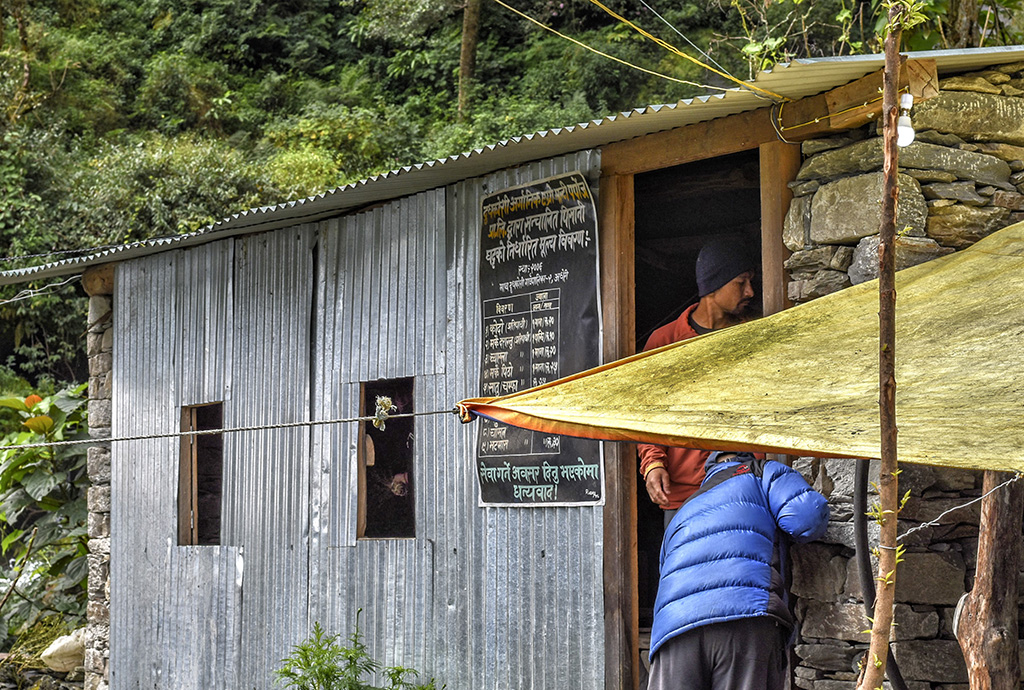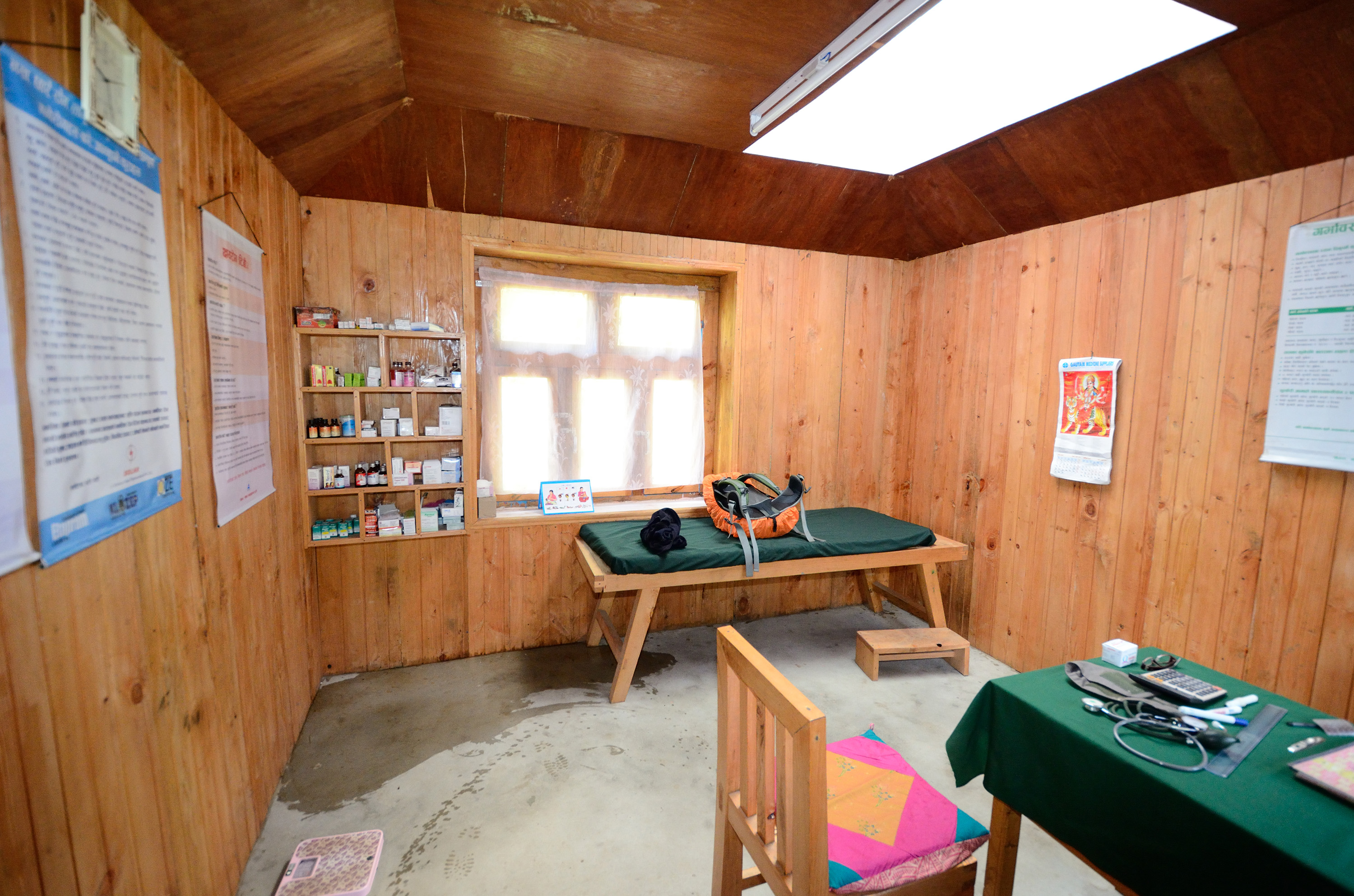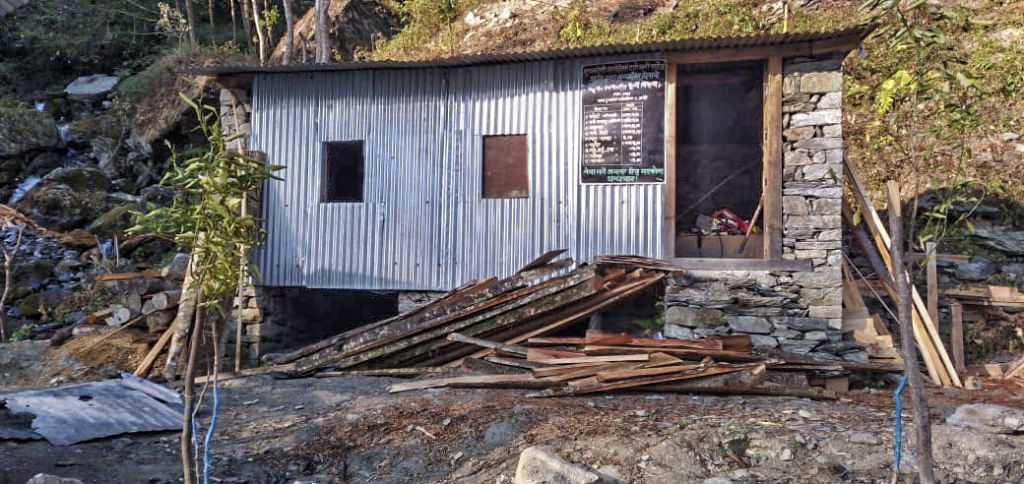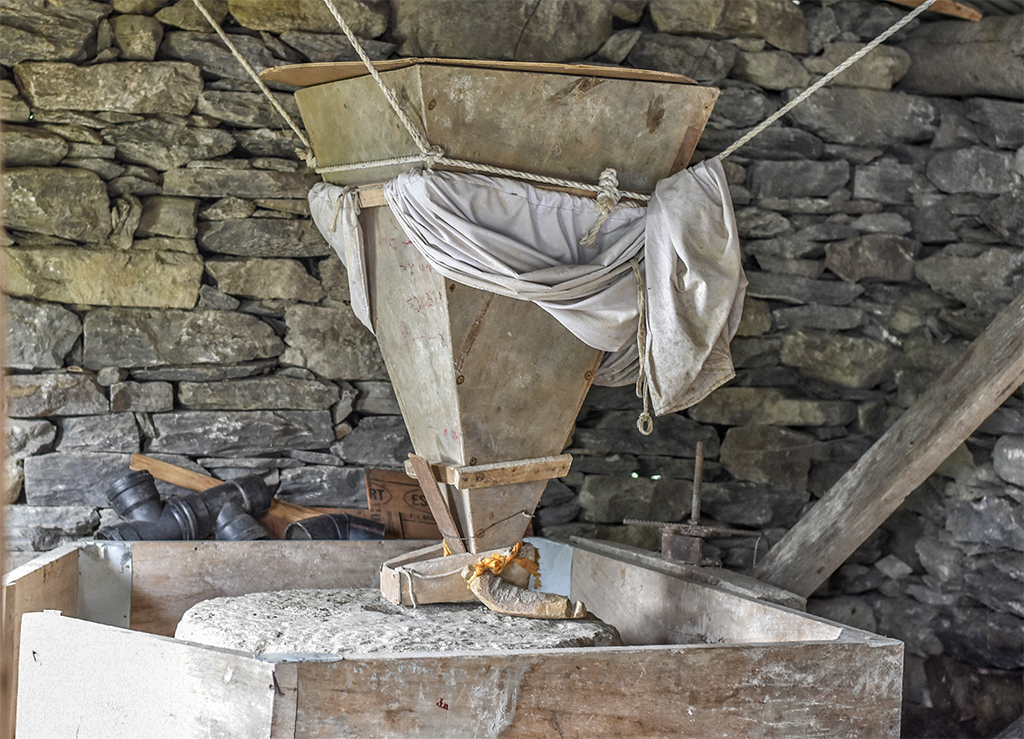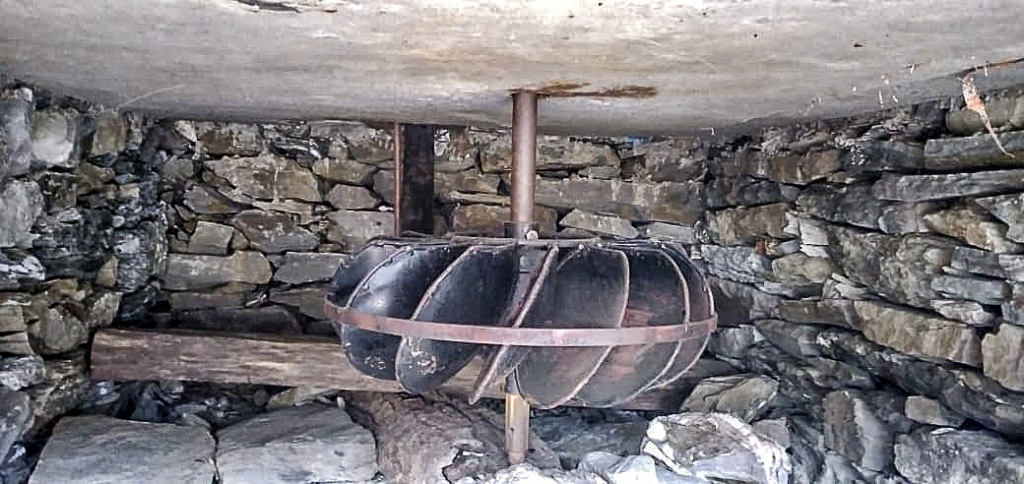On the threshold of 2022, I’d like to take this opportunity, along with all the members of the Board, to wish you all the best for the future, so that you can enjoy everything that’s close to your hearts. We hope that solidarity and friendship will be the dominant values of this new year (it is not forbidden to dream).
In a context where serenity is far from being the order of the day, let’s remain positive and motivated for all our actions that put exchanges between human beings at the forefront.
We had several discussions with Yadav to clarify our objectives for these few days in the village (personalities to meet, data to collect, places to visit, etc.).
Yadav assures us that he will do his utmost to ensure the success of this mission, and we look forward to fruitful exchanges with Rapcha’s representatives and managers.
About the dispensary:
“…The Rapcha health post has recently been upgraded and is now entitled to have a health assistant (HA), a CMA or an ANM and an office assistant, making a total of three employees. The electricity and water networks at the health post are now working properly.
We have also learned that a medical camp was organised in Rapcha by RE-HELP (a German association) this autumn, after which medicines were left at the dispensary.
On the mill:
Yadav gave us a few details about how the mill works:
“I put the questions to the farm manager, Nirmal, and asked him for an update on the water mill. He told me that at present, at least half the inhabitants of Rapcha use the services of the water mill.
What’s more, the mill remains idle all day if there is no grain to grind from/for customers.”
We hope that other trips to Nepal will be organised afterwards, as Louis and I envisaged at the AGM, so that we can resume regular exchanges with the villagers of Rapcha and expand (and rejuvenate) our small team of ANUVAM members.
Happy New Year 2022, with all my friendship.
The President, Gisèle Bonnet.


